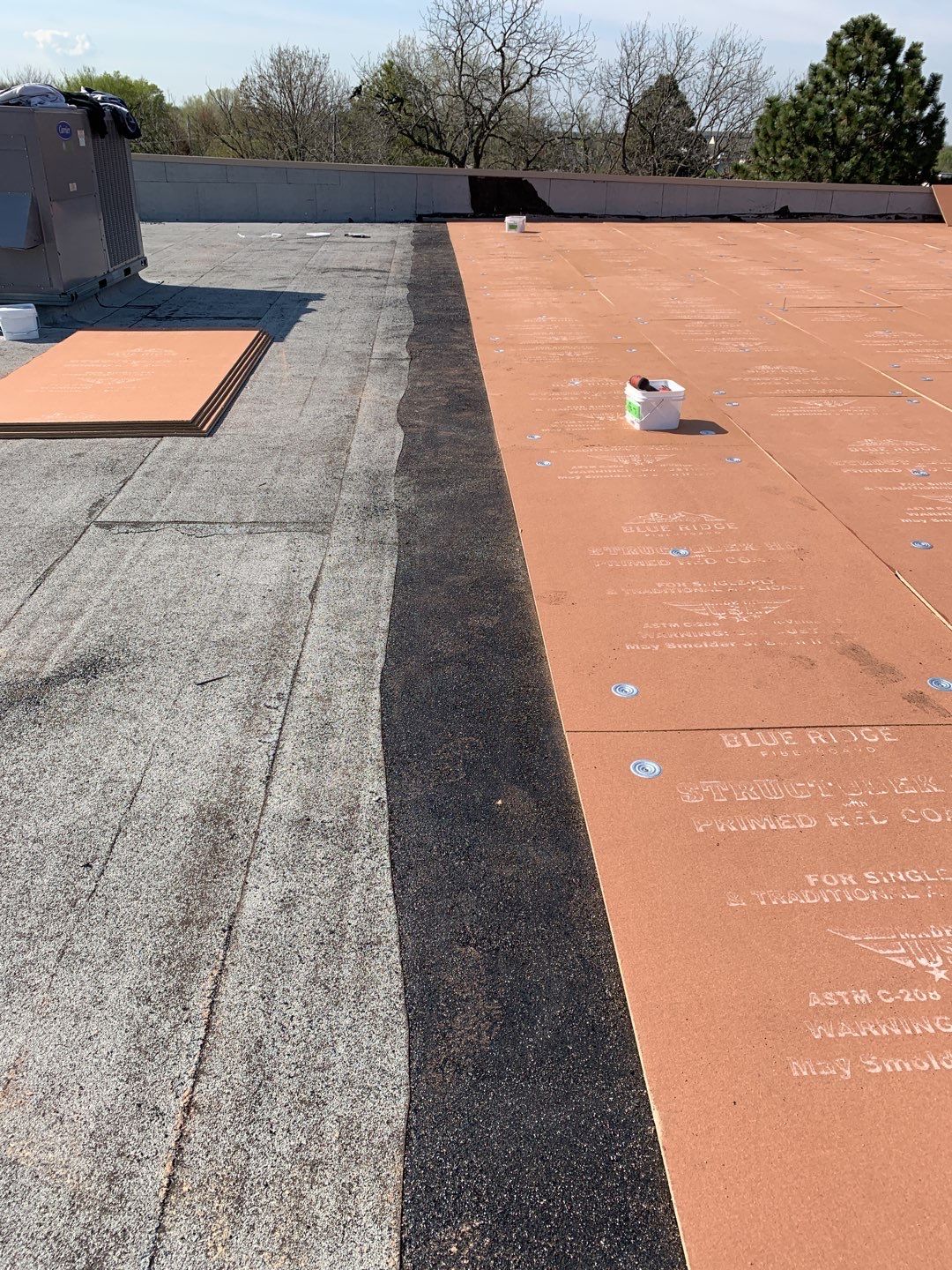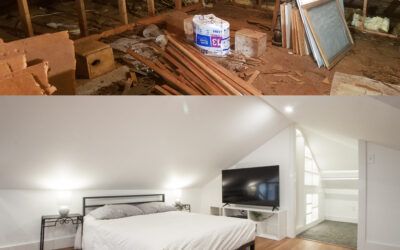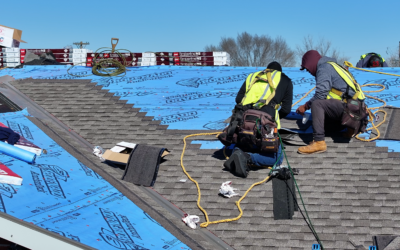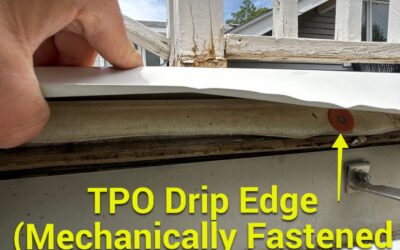One of the best ways to prevent expensive problems during a low slope roofing project is to ensure that the roof’s substrate is as durable as the roofing material installed over it. Both fiberboard and DensDeck are examples of cover board – a protective layer placed over insulation to add strength, stability, and impact resistance beneath the membrane. While both options have advantages, this article will help you decide which cover board is most likely to prevent your low slope roof’s potentially expensive problems.
Low slope roofs must be impermeable and durable because rainwater runoff does not drain as quickly as it does from pitched roofs. This makes standing water a constant concern. Even small breaches in the membrane can result in leaks. Typically, the first casualty of a leak is the roof’s substrate, which is unable to dry out when water becomes trapped under the membrane.
Fiberboard is used in many construction applications, including roofing, and its performance as a cover board depends on how and where it’s installed. DensDeck, by contrast, is a gypsum-based material engineered specifically for low slope roof assemblies, offering enhanced fire resistance and moisture performance.
Here we will discuss the differences between fiberboard and DensDeck, including where, and how, each material is commonly used.
What Is Fiberboard?
Fiberboard, as the name suggests, is made from the leftover fibers created during manufacturing. Wood dust, strands, fibers, and chips that would normally find their way into a landfill are combined with resins to form a durable sheet.

Cover board offers valuable rigidity when performing a layover on a low slope roofing system. Fiberboard, pictured above, can be used on roofing systems that need additional rigidity before adding the new membrane while reducing up-front costs.
Fiberboard is the general term for this type of material manufacturing, and it’s available in both medium and high-density versions. Most fiberboard comprises medium-density fiberboard (MDF), which is both affordable and broadly useful, although it’s less moisture and fire-resistant than higher-density alternatives, like DensDeck.
What Is DensDeck?
DensDeck is a gypsum-based cover board manufactured by Georgia-Pacific that’s designed to address the limitations of MDF in low slope roofing systems. These limitations include minimal fire resistance, and a vulnerability to wind uplift and punctures. DensDeck has a high ignition point, adheres securely, and offers excellent rigidity, preventing punctures.
Gypsum-based products place gypsum, a type of calcium sulfate, between two or more layers of durable material to form a flat, uniform sheet, which can be attached mechanically (using staples, nails, or screws), partially adhered, or fully adhered using adhesives. DensDeck’s structural consistency makes it a solid, reliable substrate for membrane adhesion while also withstanding foot traffic and moisture exposure better than most fiberboard alternatives.
While DensDeck typically requires a higher initial investment, it can be installed efficiently and offers improved long-term performance. Fiberboard’s less specialized and more prolific in construction, resulting in a lower cost, but it may require additional labor to install properly and it’s more vulnerable to weather elements.
Fiberboard can be installed as full sheets to some extent, but generally fiberboard installation will be more labor intensive than DensDeck. The advantages of DensDeck are superior durability and performance, while the biggest advantage of using fiberboard is lower cost.
What Are the Pros and Cons of Using Fiberboard Cover Board?
Both materials are appropriate in the construction of low slope roofing systems, but certain elements can make the project more, or less, complex. Cutting around protrusions, like pipes or other rooftop penetrations, is much easier with DensDeck because the material is often cut manually with a sharp utility blade instead of a saw blade. This also reduces the airborne lung irritants created by the saw.
Fiberboard must be sized appropriately. On roofs where trusses or joists are spaced further apart, thicker fiberboard may be required to prevent sagging between structural members.
Fiberboard Pros:
- Costs less to purchase than DensDeck.
- Versatile, and can be fit for use in many locations around the roof.
- In stock at most home improvement stores.
Fiberboard Cons:
- Can require more time and effort to install than DensDeck.
- Lacks the durability of DensDeck, but it is repairable.
- Susceptible to excess moisture retention.

What Are the Pros and Cons of Using DensDeck Cover Board?
Because DensDeck was designed for use on low slope roofing systems, it’s usually more expensive to purchase than fiberboard, but an experienced installation team can install DensDeck faster than fiberboard, so labor can be significantly less expensive.
DensDeck Pros:
- Superior rigidity and stability.
- Excellent fire resistance.
- Better moisture resistance.
- Available in several assemblies to speed up installation.
DensDeck Cons:
- Additional cost. DensDeck usually costs 25-30 percent more than fiberboard, but the exact price can vary from region to region.
How Do I Choose Between Fiberboard and Densdeck for My Flat Roof?
In many cases the choice between fiberboard and DensDeck is decided by an owner interested in balancing initial cost versus potential future savings. For example, a building owner may opt for fiberboard if the budget for the project is limited. The risk of increased future maintenance costs if the substrate gets saturated increases with fiberboard, but the initial cost will be lower.
A different building owner may have plans to retain the building long term or wants reduced capital expenditure in the future. DensDeck would be the obvious choice in this case.
Need Help Choosing the Right Cover Board?
If you’re in need of free, expert advice regarding fiberboard or DensDeck and which cover board makes sense for your roof, schedule a free inspection with a roofing specialist.
After continuing your low slope roofing education with a free inspection, whether you choose fiberboard or DensDeck for your roofing project, you’ll know you made the right decision.



